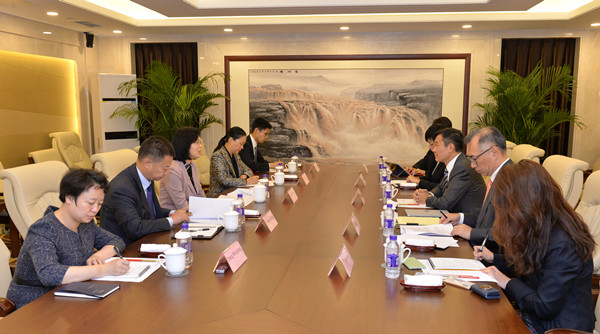Shen Ying, Vice Chairman of the State-owned Assets Supervision and Administration Commission of the State Council (SASAC), met with a delegation led by Horace Chow, Microsoft's Vice President and Chief Operating Officer for the China region, at the SASAC office building in Beijing on Oct 17.

SASAC Vice Chairman Shen Ying (3rd L) holds a meeting with a delegation led by Horace Chow (2nd R), Microsoft's Vice President and Chief Operating Officer for the China region at the SASAC office building in Beijing on Oct 17. [Photo/sasac.gov.cn]
The two sides exchanged ideas on the reform of state-owned assets and state-owned enterprises (SOEs) and informatization. Shen briefed China's progress on SOE reform, stating that SASAC and Chinese central SOEs have considered supply-side structural reform as the primary task. They have focused on high-quality growth, optimizing the layout of state-owned assets, strengthening reorganization and integration and deepening institutional reform in accordance with the decisions of the CPC Central Committee and the State Council, which helped unleash vitality and boosted the development of SOEs.
She went on to say that SASAC is transforming its responsibility as a supervisory body by centering on capital management, so as to keep improving its supervision and management efficacy.
SASAC is actively promoting the informatization of Chinese central SOEs, encouraging them to enhance their core competitiveness with the help of modern information technology, and supporting them as they deepen cooperation with world famous companies including Microsoft, hoping to realize complementary cooperation and win-win results, Shen added.
Chow introduced Microsoft's business in China, noting that the company is dedicated to long-term development in China, and attaches great importance to deepening technological exchange and cooperation with Chinese central SOEs. It will continue to input capital and talents and provide information technology and supportive services for the transformation and upgrading of Chinese central SOEs.
(Executive editor: Hao Wen)